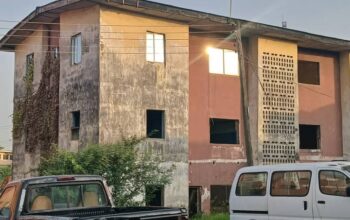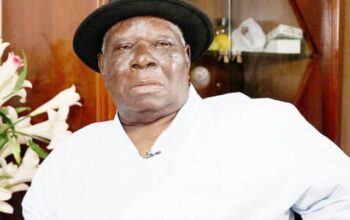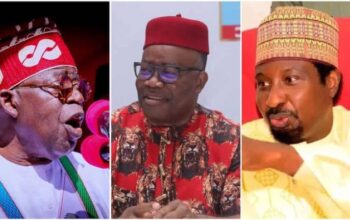
By Fredrick Nwabufo
It is said that seeing is believing. But for the Nigerian, seeing alone may not be enough. There must be certainty and palpability not only to the sensory apparatuses but also to logic. Bottomline, there must be plausibility. I will attempt to put some logic into what Nigerians are witnessing today as regards the overhauled Port Harcourt Refinery.
I was a witness to history yesterday, November 26, 2024 — the inauguration of the old Port Harcourt Refinery. Yes, it has come alive again. It is operational. To put it in our lingo, ‘’it is working’’. It has received a new elixir after many years of lethargy.
The 60,000 barrels-per-day old Port Harcourt Refinery, which was established in 1965, had suffered a series of aborted potential. Certain previous administrations had failed to restart this critical national asset. In March 2021, the Buhari administration awarded the contract for the rehabilitation of the refinery and repair works began in phases.
In his statement welcoming the revival of the plant, President Bola Tinubu, whose strong and courageous leadership brought to realisation this seeming holy grail, acknowledged the elemental role of former President Muhammadu Buhari in initiating the comprehensive rehabilitation of all the refineries and thanked the African Export-Import Bank for its support in financing the project.
The President also directed the speedy reactivation of the new Port Harcourt Refinery, the Warri Refinery, and the Kaduna Refinery. This is in furtherance of his vision of ensuring the nation’s energy security and independence, as well as economic advancement.
The President has undertaken bold and surgical reforms in the oil and gas sector. He issued five executive orders to unlock over $2.5 billion in oil and gas investments, among other initiatives. With his support for achieving local refining capacity, today, the billions of dollars previously spent annually on petrol subsidy, which puts pressure on the naira, can be repurposed, and with new opportunities opening up in the sector.
The launch of the revamped plant on Tuesday was successful but not without an expected sputter of heterogenous reactions. Nigerians are happy to see the revival of this often noised but slumbering asset. It is happening in their lifetime. Most young people, including myself, were not born when this refinery was set up. In fact, many were not born when the refinery was functional and only grew to hear about its spasms of failures. It is a living, puffing, and breathing labyrinth of engines today.
Putting clarity to misleading claims over the resuscitated plant, the Nigerian National Petroleum Company Limited (NNPCL) explained thus: ‘’The Old Port Harcourt Refinery is currently operating at 70% of its installed capacity, with plans to ramp up to 90%. The refinery is producing the following daily outputs:
‘’Straight-Run Gasoline (Naphtha): Blended into 1.4 million liters of Premium Motor Spirit (PMS or petrol)
‘’Kerosene: 900,000 liters
‘’Automotive Gas Oil (AGO or Diesel): 1.5 million liters
‘’Low Pour Fuel Oil (LPFO): 2.1 million liters
‘’Liquefied Petroleum Gas (LPG): Additional volumes
‘’It is worth noting that the refinery incorporates crack C5, a blending component from our sister company, Indorama Petrochemicals (formerly Eleme Petrochemicals), to produce gasoline that meets required specifications. Blending is a standard practice in refineries globally, as no single unit can produce gasoline that fully complies with any country’s standards without such processes.
‘’Additionally, we have made substantial progress on the new Port Harcourt Refinery, which will begin operations soon without prior announcements.’’
During a guided tour, journalists, industry leaders, and other stakeholders were conducted around the organs of the facility. From the control room to the processing units, the tanks, and the loading area where trucks were stationed to lift products. The plant was well and running.
Speaking during a ceremony to herald the onset of product loading at the refinery, Mr. Mele Kyari, GCEO of NNPCL, described the beginning of the loadout activities as a significant achievement for Nigeria. He thanked President Tinubu for his support and understanding towards the project and for his persistence to ensure energy security for the country.
He also thanked the NNPC Ltd Board of Directors and the entire staff for their support and commitment, which led to the reactivation of the refinery, and Nigerians for their patience and for the genuine expectations on the company to deliver on the other refineries.
There are well-founded concerns about the sustainability of the refinery. This is the plausibility factor. But one thing is certain about the Tinubu administration, there will be no unfinished business as regards securing Nigeria economically and ensuring the best outcomes for citizens across all sectors. With every horizon comes fresh possibilities, the administration is determined in its purpose of advancing the nation.
Fredrick Nwabufo is Senior Special Assistant to President on Public Engagement



